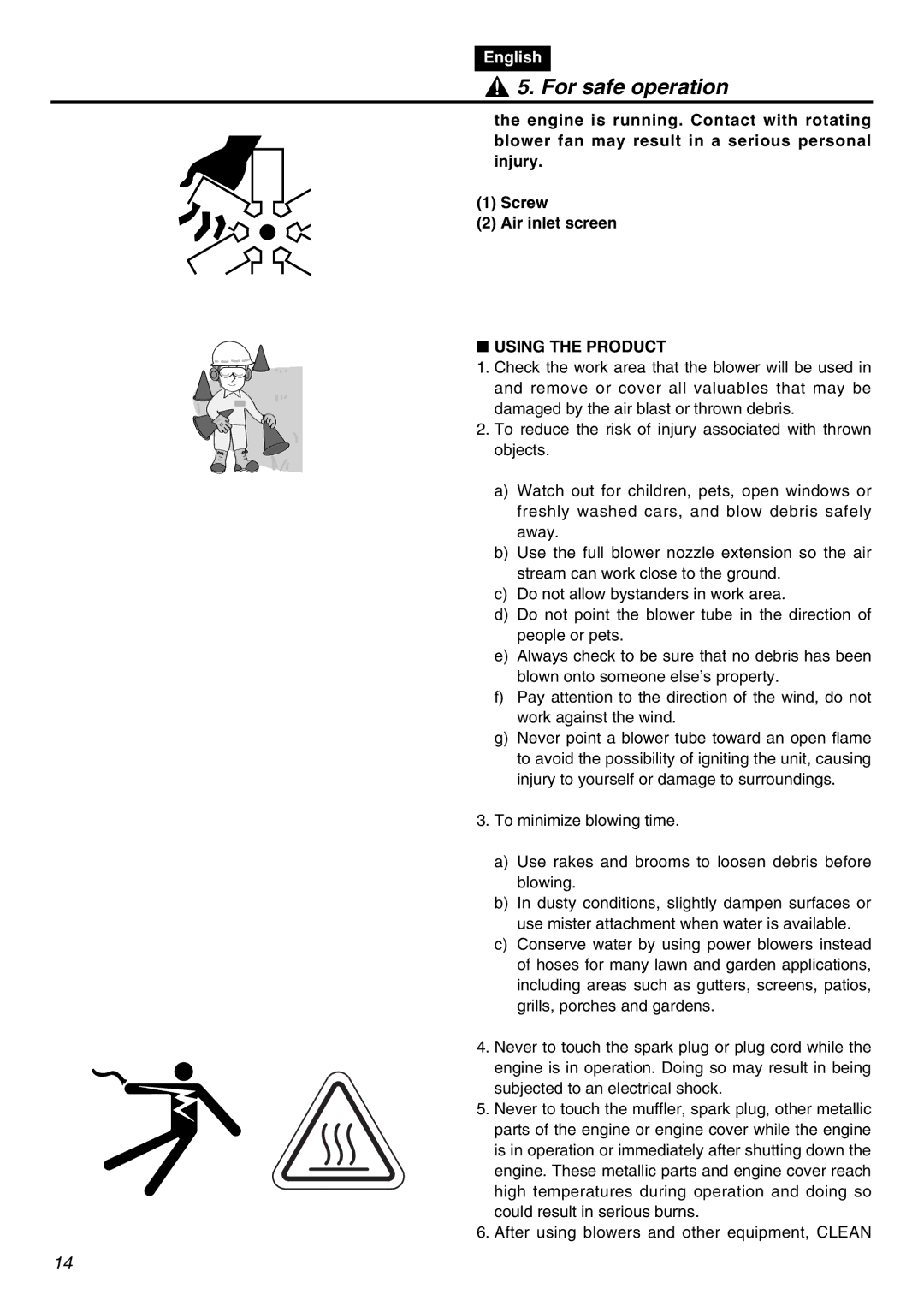
English
 5. For safe operation
5. For safe operation
the engine is running. Contact with rotating blower fan may result in a serious personal injury.
(1)Screw
(2)Air inlet screen
■USING THE PRODUCT
1.Check the work area that the blower will be used in and remove or cover all valuables that may be damaged by the air blast or thrown debris.
2.To reduce the risk of injury associated with thrown objects.
a)Watch out for children, pets, open windows or freshly washed cars, and blow debris safely away.
b)Use the full blower nozzle extension so the air stream can work close to the ground.
c)Do not allow bystanders in work area.
d)Do not point the blower tube in the direction of people or pets.
e)Always check to be sure that no debris has been blown onto someone else’s property.
f)Pay attention to the direction of the wind, do not work against the wind.
g)Never point a blower tube toward an open flame to avoid the possibility of igniting the unit, causing injury to yourself or damage to surroundings.
3.To minimize blowing time.
a)Use rakes and brooms to loosen debris before blowing.
b)In dusty conditions, slightly dampen surfaces or use mister attachment when water is available.
c)Conserve water by using power blowers instead of hoses for many lawn and garden applications, including areas such as gutters, screens, patios, grills, porches and gardens.
4.Never to touch the spark plug or plug cord while the engine is in operation. Doing so may result in being subjected to an electrical shock.
5.Never to touch the muffler, spark plug, other metallic parts of the engine or engine cover while the engine is in operation or immediately after shutting down the engine. These metallic parts and engine cover reach high temperatures during operation and doing so could result in serious burns.
6.After using blowers and other equipment, CLEAN
14
